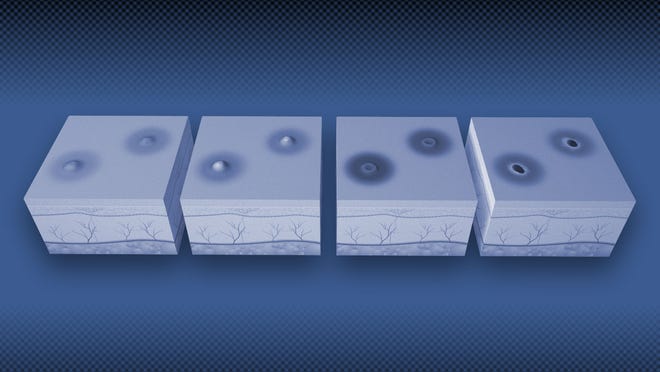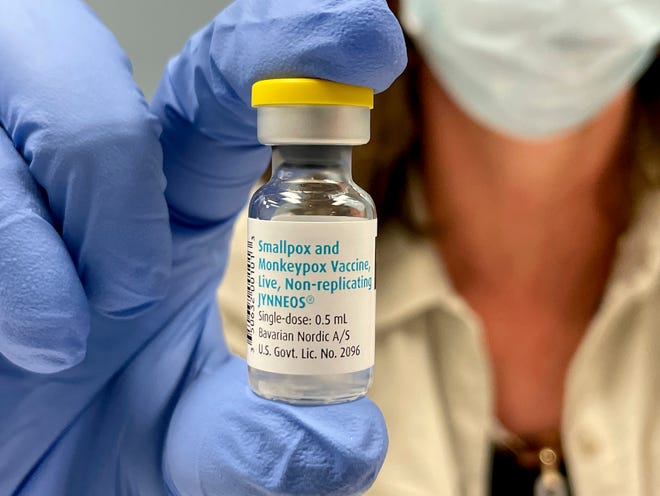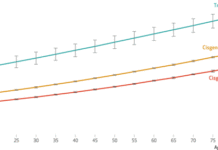Riverside County Public Health reported an additional two confirmed or probable monkeypox cases in the Coachella Valley on Friday.
Both are men who live in the Coachella Valley, according to county spokesperson Jose Arballo Jr. on Twitter. Their age range was not provided.
There have been 78 confirmed and probable monkeypox cases reported in Riverside County as of Friday.
Monkeypox is a rare disease caused by the monkeypox virus. People usually become infected through close contact with skin lesions or bodily fluids of infected animals or humans (alive or dead), including droplets, or clothing and linens from an infected person. The virus can also be spread through sexual contact, but it is not classified as a sexually transmitted infection.

Symptoms can occur five to 21 days after exposure, and include fever, headache, muscle aches, swollen lymph nodes, rash and lesions often in the genital and perianal region. Illness typically lasts for two to four weeks.
Anyone who believes they have been exposed to monkeypox should contact their healthcare provider.
More: Riverside County Public Health declares public health emergency as monkeypox cases grow
Coachella Valley leaders continue to urge the state for more vaccines to combat the virus locally.
DAP Health and the Desert Healthcare District and Foundation, along with the City of Palm Springs and Desert Care Network, are calling for an immediate increase in vaccines for LGBTQ+ residents, according to an advertisement that will print in the Sacramento Bee’s Sunday edition.
Monkeypox can infect anyone, but it has disproportionately affected men who have sex with men, a group that includes people who identify as gay, bisexual, transgender and nonbinary.
According to the California Department of Public Health, 87.9% of monkeypox cases have been among gay, lesbian or same-gender loving people in the state, and another 7.7% of cases among bisexual people. White people make up 39.6% of cases, with Hispanics or Latinos at 37.6% and Black or African Americans at 11.2%.
“As the state calibrates its response to the monkeypox outbreak, I urge them to give due consideration to the unique risk factors that will predispose regions, such as the Coachella Valley, to higher levels of exposure and infection from monkeypox,” DAP Health CEO David Brinkman said in a statement.

The state allocates vaccines to local health departments based on a formula that weighs the number of reported monkeypox cases and number of early syphilis cases among males. Brinkman said those metrics are “lagging indicators.”
“They don’t capture where the exposure is occurring. Because the data is captured at an individual’s local clinic, these metrics simply capture where an individual resides. This does nothing to prevent exposure or infection from occurring in the first place,” he said. “Focusing on regions with high-risk factors is necessary to end this outbreak.”
Desert Healthcare District and Foundation CEO Dr. Conrado Bárzaga added that “The lack of awareness by the state about our community and how it’s vulnerable to the monkeypox virus is a tremendous barrier. We have to change it.”
Riverside County has been allocated 5,384 vaccine doses as of Tuesday, according to the state public health department.
Earlier this week, the Food and Drug Administration issued an emergency use authorization for the Jynneos monkeypox vaccine so it can be available for adults as a so-called intradermal injection. Rather than injecting a full dose into the fat layer under the skin, one-fifth would be administered into the top layer of skin. The new approach is expected to boost vaccination efforts locally, which have primarily been limited to a health care provider’s most at-risk patients.
Read more: New delivery of monkeypox vaccine could expand availability, prioritization in Riverside County
Ema Sasic covers entertainment and health in the Coachella Valley. Reach her at ema.sasic@desertsun.com or on Twitter @ema_sasic.








